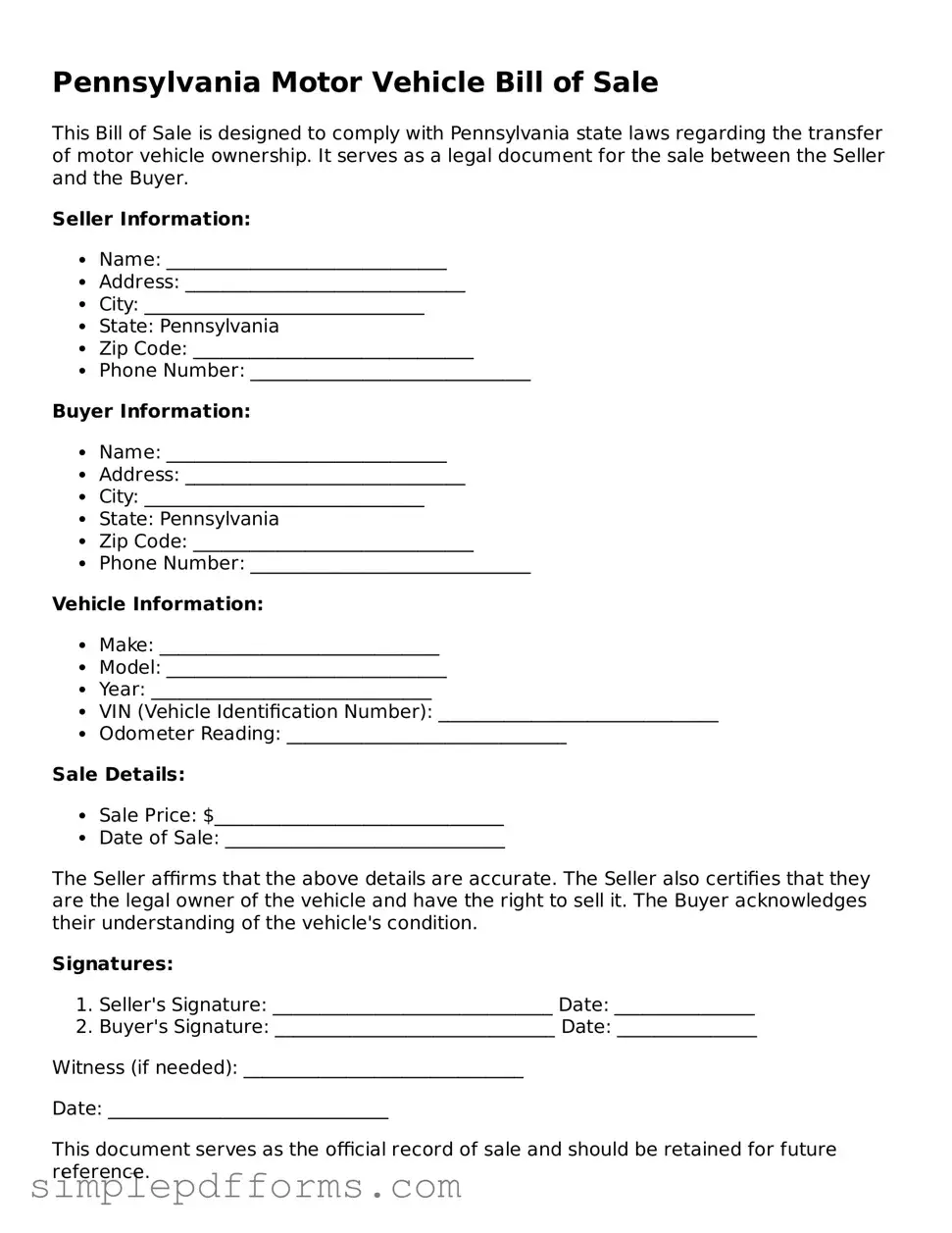When filling out the Pennsylvania Motor Vehicle Bill of Sale form, many individuals inadvertently make mistakes that can complicate the transfer of ownership. One common error involves omitting crucial information. Buyers and sellers alike must ensure that all fields are completed accurately, including the vehicle identification number (VIN), make, model, and year of the vehicle. Leaving out even one detail can lead to confusion and potential legal issues down the line.
Another frequent mistake is failing to include the correct sale price. The sale price must reflect the actual amount paid for the vehicle. If this figure is inaccurate, it may raise questions during title transfer or even when calculating taxes. It’s essential to double-check that the price listed matches what was agreed upon during the sale.
Many people also overlook the importance of signatures. Both the seller and the buyer must sign the form to validate the transaction. Without these signatures, the Bill of Sale may not hold up in legal situations, such as disputes or claims of ownership. It’s advisable to have both parties present when signing to avoid any misunderstandings later on.
Another common oversight is neglecting to date the document. A Bill of Sale should always be dated to establish a clear timeline for the transaction. This date can be crucial if any disputes arise regarding when the vehicle was sold or if there are issues with registration.
Inaccurate personal information can also lead to problems. Sellers and buyers must ensure that their names, addresses, and contact information are correct. Typos or incorrect entries can create confusion and may even hinder the ability to contact one another in the future.
Some individuals fail to provide information about the vehicle’s condition. Including details about any existing damage or repairs can protect both parties. This transparency helps establish trust and can prevent disputes regarding the vehicle’s condition post-sale.
Another mistake involves not keeping a copy of the completed Bill of Sale. After signing, both parties should retain a copy for their records. This document serves as proof of the transaction and can be invaluable if questions arise later about ownership or payment.
People sometimes forget to verify that the vehicle is free of liens. Before finalizing the sale, it is wise to check that no outstanding loans or legal claims exist against the vehicle. This step can prevent future complications for the buyer, who may unknowingly purchase a vehicle that is not fully owned by the seller.
Lastly, failing to understand the legal implications of the Bill of Sale can lead to unintended consequences. Individuals should recognize that this document is not just a formality; it is a legal record of the transaction. Understanding its significance can encourage careful completion and adherence to all necessary details.

